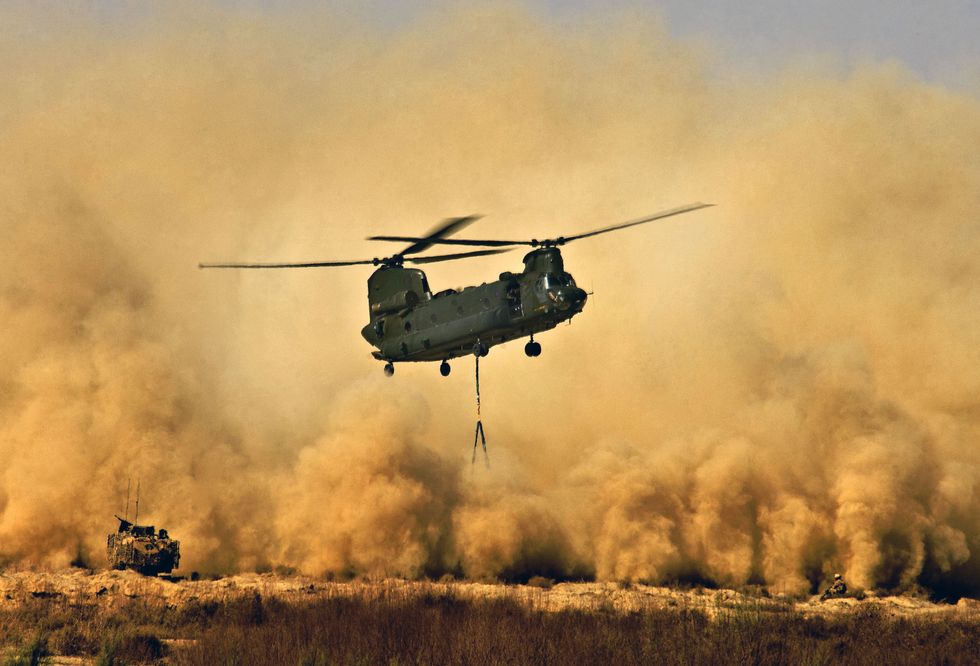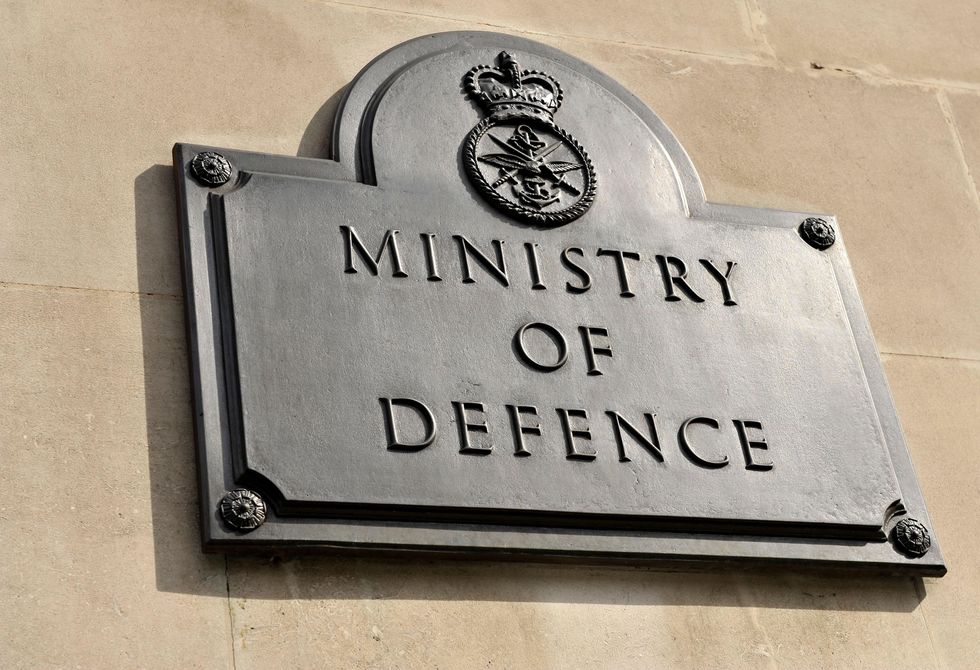Toxic fumes from a range of aircraft have pushed dozens of personnel to take legal action
PA/Wikimedia Commons/MoD
Legal professionals representing the pilots and their families have warned that current reports are the 'tip of the iceberg'
Don't Miss
Most Read
Trending on GB News
Almost 40 current and former British military pilots are suing the Ministry of Defence (MoD) amid allegations that toxic fumes from military helicopters are causing a range of deadly cancers - which the department knew about for decades.
Troops who served their country in Sea King, Wessex, Puma and Chinook rotorcraft have been diagnosed with conditions including non-Hodgkin lymphoma, multiple myeloma, lung cancer, throat cancer and testicular cancer - and despite the military knowing about the health risks, ill personnel taking legal action have claimed the MoD didn't act to change anything.
Nearly 40 have enlisted legal aid to take on the MoD, the Times revealed, with the paper's report set to bring forward dozens more in the weeks to come.
At least three military personnel have already died, leaving their families to pursue justice on their behalf, while others have been told their cancers are terminal or that they may struggle to conceive children.

Personnel from Sea King, Puma, Chinook and Wessex (clockwise) aircraft have been diagnosed with cancer
MoD/Wikimedia Commons
Documents brought to light amid a string of court battles have revealed the Government had known about dangers associated with the Sea King's exhaust as long ago as 1999 - but it let airmen operate the craft regardless.
One of the lawyers representing the affected personnel from the Army, Navy and RAF, Louisa Donaghy from Hugh James solicitors, said: "Significant numbers of aircrew will have been exposed to these dangerous concentration levels of exhaust fumes and as a result may be at risk of cancer.
"The Ministry of Defence were aware that personnel were being exposed to high concentration levels of exhaust fumes, yet the personnel who flew the Sea King were not told. The MoD chose not to make them aware.
"They didn't provide the personal protective equipment, they didn't modify the aircraft by moving the exhaust and they didn't take it out of service until 2018."
MORE MILITARY NEWS:

Lawyers working on the case have warned that "significant numbers of aircrew" are at risk of cancer
PA
Another lawyer from Hugh James, Steven Horsley, said: "This is the tip of the iceberg. These people have given everything for their country and they are dying in ignorance.
"The Ministry of Defence knows about it but they are unwilling to warn them. We can't save them, but we can alert them to the true cause of their cancer - they deserve to know."
The German military had also been aware of the health risks of the aircraft's exhaust fumes, but took action - installing different exhausts on their helicopters in order to guide the toxic emissions away from crews.
Another lawyer on the cases, barrister Jonathan Dingle from Normanton Chambers, said carcinogenic gases like benzenes had been "sucked through" helicopter cabins and cockpits, leaving personnel to breathe them in.

Louisa Donaghy said "the Ministry of Defence were aware that personnel were being exposed to high concentration levels of exhaust fumes"
PA
Authorities had been planning to retire the Sea King helicopters - which remain in service - but budget cuts and delays meant the MoD couldn't make it work.
And Hugh James solicitors understands that British veterans wrote to the MoD years ago asking it to carry out blood tests on those who had flown in the helicopters to check for multiple myeloma, a bone marrow cancer, and its warning signs - but were met with silence.
A MoD spokeswoman said: "We hugely value our service personnel and veterans and owe a debt of gratitude to all those who serve, often with great personal sacrifice. We continually review our policies to ensure they are aligned with good practice and protect our people from harm.
"Service personnel and veterans who believe they have suffered ill health due to service from April 6, 2005, have the existing and longstanding right to apply for no-fault compensation under the Armed Forces Compensation Scheme."








